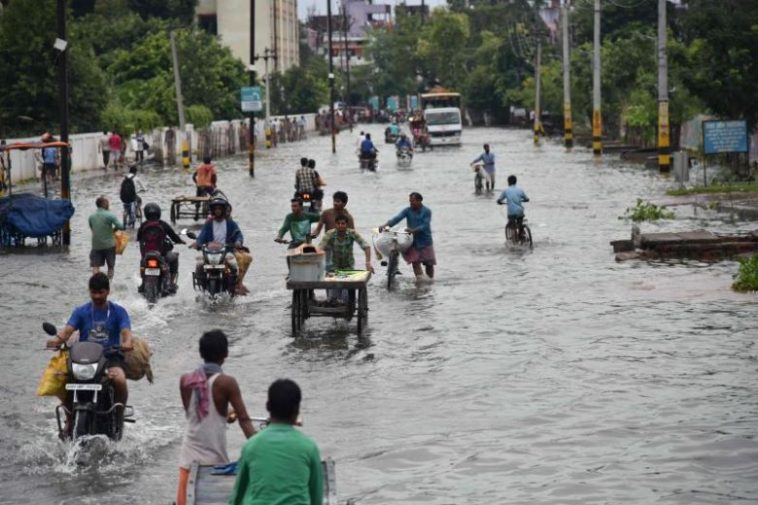Without realizing it, I could write a lockdown related story for each day of the entire lockdown period!! And yet that is not my objective, at least not as much as to keep my spirits high and wind down the clock to the 05-05-2020 d-day.
Almost 19 years ago to the date, I boarded at EBB for a triple hop trip to Bangalore City, India. This was an exciting moment for me being that, not only was I stepping on a plane for the first time but was going overseas, yes, the seas are beyond the continent, which means I was going to experience as foreign a culture as an African first time traveller could possibly encounter.
As far as cultural difference is concerned, I was not to be disappointed. In fact, I was rudely shocked. The details of the flight from Entebbe to Nairobi, then Nairobi to Mumbai, and finally Mumbai to Bangalore can provide for a thick volume book, which is far from the intention right now. This trip, that should have only been a 10 hour one, wound up to 28 hours, and involved two missed interconnection flights and lost luggage (The luggage was actually never loaded at Nairobi Jomo Kenyatta International Airport during the interchange from the smaller KQ Boeing 737 onto the bigger and longer haul Boeing 767 to Mumbai and I was to luckily receive it in Bangalore, a fortnight later, zip cut out but nothing missing).
The first rude cultural shock was when I woke up on my first morning and stepped out onto the verandah to stretch, take in some fresh air and take in the new strange but cool sounds and smells; right there in front of me was a middle-aged beautiful India lady, feeding a cow with rice out of her hands! When her bowl was empty, she touched and kissed its forehead, then touched her chest and mumbled some words, and the cow consciously walked to the next house a few feet away for a similar ritual with the next person. Every day for the next four years that I stepped out, the sights, sounds, and smells were as fresh, good and sometimes as strange an experience as it was on day one.
Every moment we met as foreigners or Ugandan students, we couldn’t stop sharing and musing about each others’ experiences of days gone by, and this was to go on for years until the end of one’s stay! In fact, 19 years later, I am still wondering why every location’s name ended with ..nagar, as it would be in Naalyanagar, Ntindanagar, Najeranagar, Bunganagar, Bugolobinagar, Mutungonagar, etcetera..just another source of conversation at the end of the day over a Kingfisher beer at a friend’s in Jayanagar.
Any “Indian Wallah” (any Uganda who studied from India) would agree that if ever one survived 3 years in India, they could survive anywhere else in the world for a lifetime. To survive the culture differences was one thing, but to survive the contrasting and extreme weather conditions prepared us all Indian Wallahs (pronounced as Wallaz) for tough moments such as the current COVID-19 lockdown. Whilst East Africa has rainy and sunny seasons, India has very wet monsoons and very dry and hot summers. The extremes of each were often catastrophic, claiming lives in floods on one end of the monsoons, and heatwaves and severe droughts during the summers.
For approximately 3 months between August and November, the South of India receives over 100mm of rainfall accounting for almost 75% of the total annual rainfall received. During this period, much of the time was spent indoors, with “rainfall holidays” because it would literally pour for 24 hours a day, 7 days a week, causing whole trees to be uprooted and thrown into roads, wrecking parked and moving cars, the ensuing floods leaving destruction in their wake.
Then, during the months of March to June is summer. For those who were studying in Andra Pradesh State, particularly in cities such as Bhopal and Agra, it is not unusual for temperatures to hit 48 ‘C, with humidity levels up to 77%. I will never forget April 2003 when I visited Bhopal for what was to be a week, and it turned into 8 weeks because of the summer lockdown. The heat and humidity levels were so high that if one opened their house door or window, they would be risking frying eggs from within their refrigerator! The State and Federal Governments would, as a custom, make periodic announcements on TV and Radio (there was no social media except Yahoo Messenger and MSN Messenger, mostly accessed through Internet Cafes), that whoever stepped out of the house and died from heatstroke, it would not be government’s responsibility.
Such a lockdown was self-supervised and there was no need for SOPs (Standard Operating Procedures) to put the population in check, everyone got into line willingly and respectfully to nature. And yet despite those nature-imposed lockdowns, it was a much more memorable experience than the 1 year Masters’ studies sojourn in Europe, and I am sure that I am only but one of many who would opine as such. All Indian Wallahz out there must be breezing through this lockdown with so much ease and nostalgia for years gone past.
Let us maintain social distance, Keep Safe!
This post was created with our nice and easy submission form. Create your post!





